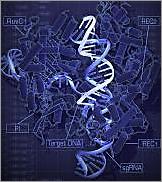
As 2018 comes to a close, one of the year's most startling scientific developments was the announcement of gene-edited twin girls born in China. While the promise and power of the technique known as CRISPR have long been known, scientists and policymakers have emphasized resisting the temptation to use it on human embryos. That is, however, precisely what He Jainkui did, as described in an article in Wired. He's attempt to contain the firestorm of criticism by proposing "a core set of fundamental human values to frame, guide and restrict clinical applications" of gene editing failed miserably, putting a point on the fact that "there are no actual international rules" for use of the technique. The primary ethical concern is limited understanding of the effects of so-called "germline editing," which is heritable and can be passed to future generations. Beyond doubts about the effects of CRISPR on the twin girls, Wired notes, "He’s research raises the spectre of gene-editing enhancements, designer babies if you will, such as making a person taller or smarter before birth," possibly heralding a new era of human-created genetic inequality.